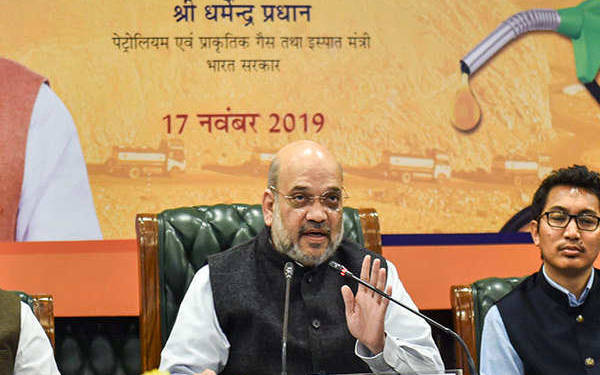The Union Territory of Ladakh witnesses very long and harsh winters with temperatures plummeting below -30 degree Celsius. People living in these areas experience a lot of hardships, especially when Ladakh sees snowfall. The extreme cold results in landslides, avalanches, feezing of water supply. Such intensely cold, bone chilling weather also leads to the issue of freezing of diesel in vehicles, that leaves the residents of Ladakh immobilised in the remote areas characterized by harsh, mountainous terrain.
It also creates the issue of fuel loss for the motorists who end up losing financially due to freezing of diesel in their vehicles. This is a major issue especially for those living in remote/ far-flung areas where fuel availability in itself may be an issue, and with frozen fuel one gets completely immobilised. One can only imagine the plight of the local residents in situations of emergency.
It is also important to mention here that even basic amenities like healthcare are at a considerable distance in hilly, remote areas. The problem of freezing fuel therefore only aggravates the hardships caused by intensely cold weather.
In what can be called as a huge relief to the people of Ladakh, the Modi government has given a much-needed winter gift to the newly carved out Union Territory, as Union Minister Amit Shah launched the supply of special winter-grade diesel for high altitude Ladakh. This is a huge boon to the far-flung and high altitude areas of Ladakh such as Ladakh, Kargil, Kaza and Keylong.
The launch of special grade diesel for Ladakh ought to be seen in the said background. Union Home Minister inaugurated the supply of this special fuel through video conference. He said that the winter-grade diesel has been developed by the Indian Oil Corporation Limited (IOCL) to address the problem of fuel loss during extreme winter conditions. An official said that the IOCL has developed the winter-grade diesel after being apprised of the difficulties. The company came up with the innovative solution of introducing this special category of diesel that does not freeze and maintains its fluidity even in extreme winter conditions.
The IOCL has developed the winter-grade diesel after keeping the hardships faced by the people of Ladakh in mind. It interacted with the local people and channel partners in the region, and received feedbacks about the difficulties in using standard diesel. An official statement read, “IOCL has come up with an innovative solution to this problem by introducing a special winter-grade diesel with a low pour-point of minus 33-degrees Celsius, which does not lose its fluidity function even in extreme winter conditions.”
What is going to make this special category of fuel an instant success is the fact that it complies with the BIS specification of BS-VI grade and was successfully produced and certified for the first time by the Panipat Refinery on November 8. IOCL has first delivery of the winter-grade diesel oil is being effected to the highest altitude retail outlets at Leh. The first truck containing winter grade diesel has been flagged off from the Panipat Marketing Complex of the Oil and Gas company, IOCL. However, the subsequent supplies would be effected through the Jalandhar oil terminal from where the supplies would reach the Leh and Kargil depots in a matter of huge relief for the people of Ladakh during the peak winter season.
After the August 5 move of abrogating Article 370 and doing away with the special status conferred upon the erstwhile state of Jammu & Kashmir, the Modi government had promised quick, unprecedented development in the newly created Union Territories of Ladakh and Jammu & Kashmir. It seems that the Modi government is delivering right away when it comes to its promise of accelerated development in the region. As such 2019 is turning out to be a golden year for the people of Ladakh: first, their demand of making Ladakh a Union Territory was met and now the Modi government has made the harsh, bone chilling Ladakh winter relatively comfortable by introducing the winter-grade diesel after which the Union Territory will no longer face the problems of fuel loss and immobilisation.

























